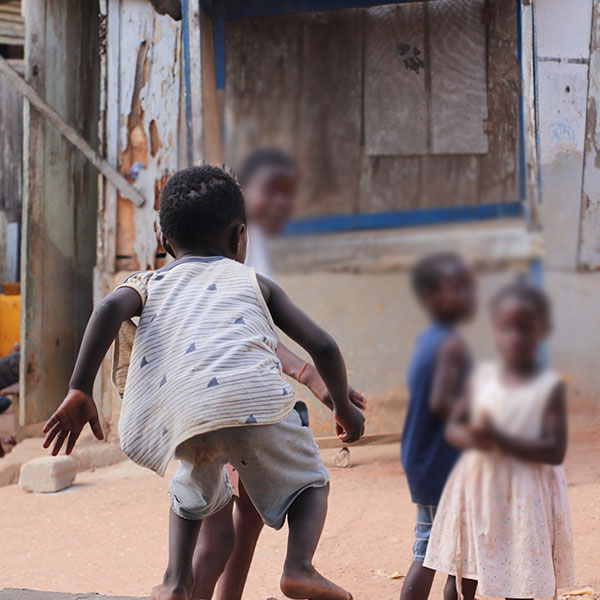When four-year-old Kojo began losing weight rapidly, his mother, Ama, was terrified.
“He was always thirsty, always tired,” she recalls. “We thought someone had cursed him.”
In their small town outside Elmina, whispers spread fast. Some neighbors urged Ama to visit a shrine; others said she should pray harder. For weeks, she tried everything until one Sunday, Kojo collapsed. That was when a local nurse mentioned something Ama had never heard before: Type 1 diabetes.
A Misunderstood Illness
Across Ghana, hundreds of families like Ama’s are navigating a painful reality childhood diabetes is real, but widely misunderstood.
Type 1 diabetes is an autoimmune condition in which the body stops producing insulin, a hormone that helps regulate blood sugar. It often develops in childhood or adolescence and, without insulin treatment, can be life-threatening.
Yet in many Ghanaian communities, such symptoms are often linked to spiritual causes, curses, or witchcraft. This cultural stigma not only delays diagnosis but can lead to fatal consequences.
“They told us children don’t get diabetes. Some said we offended someone,” Ama says. “It took weeks before anyone told us it could be medical.”
The Numbers Tell a Difficult Story
While official national data is limited, studies suggest thousands of Ghanaian children under 20 live with Type 1 diabetes, many undiagnosed or poorly managed. According to the International Diabetes Federation, the disease burden in Sub-Saharan Africa is rising sharply, and Ghana is no exception.
Unfortunately, the National Health Insurance Scheme (NHIS) does not fully cover insulin, testing strips, or glucometers. Parents must often pay out of pocket for supplies that can cost more than their monthly income.
“We sold our small television to buy insulin,” Ama says. “Sometimes we skip doses because we can’t afford the test strips.”
This financial strain pushes families to make impossible choices between food, education, and life-sustaining medicine.
Stigma, Myths, and Missed Diagnoses
A 2023 study by Ghanaian researchers found that many parents delay hospital visits because of spiritual interpretations of illness. Others reported misdiagnoses at local clinics, where children were treated for malaria or typhoid before anyone considered diabetes.
Even after diagnosis, children face discrimination in schools. Some teachers fear that a diabetic student may “collapse mysteriously.” Others ban snacks or water bottles in class, unaware that these are crucial for managing low blood sugar.
Breaking the Silence
But change is possible. Speaking in an exclusive interview a nursing officer and the ward in-charge at the female and kids ward at Elmina Government Hospital, Mrs. Joan Assifual-Nunoo saidearly diagnosis, education and reliable access to insulin can transform lives. She urged parents to seek medical advice when they see any sudden changes in the life of their children.
Across Ghana, NGOs such as SHE Helping Hand, in partnership with the Cape Coast Teaching Hospital and partners, are working to provide free or subsidized insulin and education materials.
Still, the gap remains large and advocacy is critical.
What Must Change
1. Government Policy
- Expand NHIS to cover insulin, syringes, and testing supplies for children with diabetes.
- Adopt and implement national pediatric diabetes guidelines across all regions.
- Ensure teachers and school health coordinators receive basic diabetes management training.
2. Health Sector Partnerships
- Strengthen supply chains to prevent insulin shortages.
- Support community-based awareness programs that correct myths and encourage early diagnosis.
3. Communities and Faith Leaders
- Speak openly about diabetes. Encourage health checks instead of spiritual blame.
- Create parent support networks where families share experiences and coping strategies.
A Mother’s Hope
Today, Kojo takes his insulin daily. He plays football again, attends school, and dreams of becoming a doctor.
But Ama knows others are not as fortunate.
“If I had known earlier, I would have saved my boy from so much pain,” she says softly. “Now I tell every mother when your child is losing weight and always thirsty, don’t wait. Go to the hospital.”
The Message
Childhood diabetes is not a curse. It’s a medical condition — and with proper care, every child can live a full life.
Let’s end the silence, fight the stigma, and demand accessible insulin for every Ghanaian child who needs it.
#ChildhoodDiabetesAwareness #GhanaHealth #EndTheStigma #InsulinForAll





